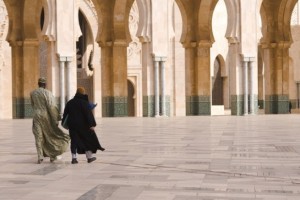CPI FINANCIAL
The Council, which was asked to weigh in on the draft by Mohamed Cheikh Biadillah, President of the Chamber of Councillors, proposed two changes. The first related related to a lack of consumer information necessary to avoid unfair marketing by Islamic banks while the second dealt with the need to clarify the roles of the National Council of Ulema — a body of Islamic scholars—and the Central Bank in the oversight of the sector.
According to Eastern Regional Council of Ulema Chairman and CESE member Mustapha Benhamze, the establishment of Islamic banks in Morocco was a necessity.
However, civil society activist and fellow CESE member Hakima Naji opposed the intervention of the High Council of Ulema in the financial sector. She criticised the idea of religious management of finance and said that the central bank had the necessary ability to both traditional and Islamic banks.
CESE chief and former Economy Minister Nizar Baraka highlighted the importance of creating Islamic banks by explaining that alternative products already existed in Morocco and had accounted for almost a billion dirhams of savings since 2010. This amount, he said, will be boosted by the creation of participatory banks.
This type of bank will also make it possible to increase the percentage of people who use banking services in Morocco, which currently stands at 57 per cent, he said.
“The goal is to increase this rate to two-thirds of the population,” Baraka said.
CESE underlined in its opinion that more communication about participatory products was absolutely essential in order to explain the concept properly and to avoid distinctions being made between ‘halal’ and ‘haram’ products, sociologist Karim Chabli said.
“We need to be careful that we don’t fall into this trap and create pointless debates that can only harm society when the reason for licensing Islamic banks is to respond to the needs of a category of the Moroccan population,” he said.
The draft law to create participatory Islamic banks was first adopted by Cabinet on 16 January 2014, with Minister-Delegate for the Budget Driss Azami arguing that a legislative framework for the sector was “necessary given the belief that participatory financial products and services can make an important contribution to the mobilisation of savings and financial inclusion in Morocco.” Many have also pointed out that Morocco could attract Gulf state investors through a thriving Islamic banking sector.
Participatory banks must appoint an audit committee to identify and prevent risks of noncompliance with the opinions of the council in their operations, activities and products offered to the public.
by Sarah Owermohle








